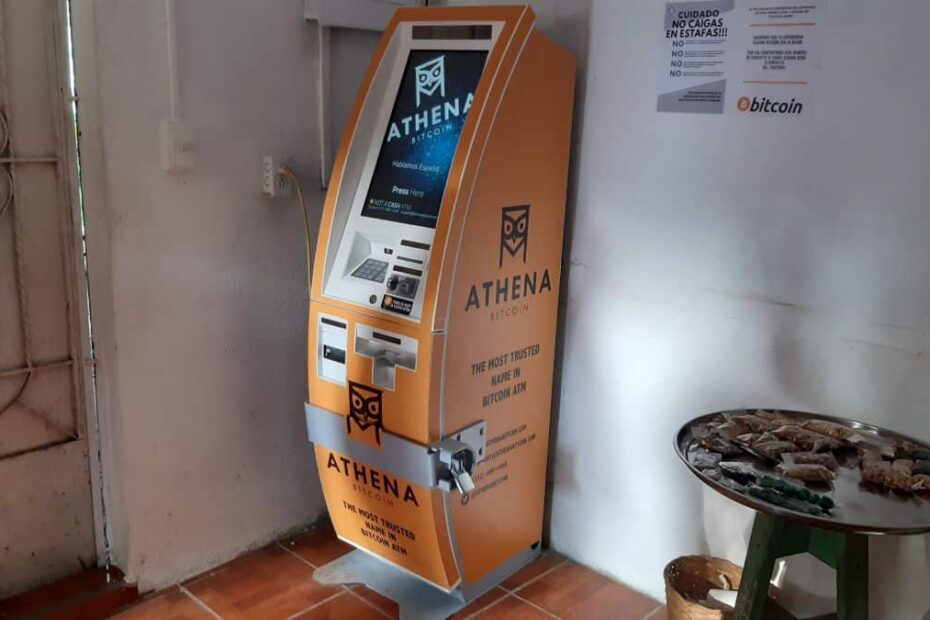In this article, we look at Bitcoin in El Salvador and the challenges faced since the country made Bitcoin legal tender in 2021.
In September 2021, El Salvador became the first country in the world to adopt Bitcoin as legal tender. This historic move drew global attention to the potential intersection of cryptocurrency and national economies.
The Bitcoin law allows Salvadorans to easily send and receive Bitcoin using their smartphones for crypto transactions, including purchasing goods and services, paying taxes, and settling debts.
El Salvador’s experiment with Bitcoin as legal tender has been closely watched since its launch. This article explores the aftermath of this unprecedented event and examines the recent developments it may have caused.
The 2021 Bitcoin Law
In June 2021, El Salvador’s President Nayib Bukele announced his intention to propose legislation establishing Bitcoin as legal tender. The objective was to foster financial inclusion and stimulate investment in the country. After congressional approval, El Salvador formally the initiative, starting September 7, 2021.
Law Details
The law mandated that all businesses in El Salvador must accept Bitcoin as payment, provided they had the technological infrastructure.
To mitigate Bitcoin’s price volatility, the law allowed instant conversion from Bitcoin to US dollars at the time of transaction. Capital gains tax exemptions meant that Salvadorans would not incur taxes when converting Bitcoin into US dollars. Businesses adopting Bitcoin received incentives, including exemptions from capital gains tax on Bitcoin investments.
The Salvadoran government supported the law’s implementation by developing necessary infrastructure, such as the Chivo Wallet, a digital wallet for sending, receiving, and storing Bitcoin using smartphones. Salvadorans who downloaded the Chivo Wallet each received $30 worth of Bitcoin to start them off with the cryptocurrency. They also announced plans to install Bitcoin ATMs across the country, and educational initiatives to promote understanding of Bitcoin. This included training programs and workshops for businesses and individuals.
The law outlined a regulatory framework for Bitcoin use, including measures to prevent money laundering, terrorism financing, and other illicit activities. Businesses engaging in Bitcoin transactions needed to follow Know Your Customer (KYC) and Anti-Money Laundering (AML) regulations.
Implementation Challenges
Many businesses lacked the technological infrastructure to accept Bitcoin payments, such as point-of-sale systems for processing transactions and familiarity with digital wallets.
Limited internet access in rural areas posed a barrier to participation in the Bitcoin economy, as online access is necessary for conducting transactions and managing digital wallets. Furthermore, most Salvadorans who could manage their digital wallet also exchanged their $30 of Bitcoin into cash immediately.
While the Bitcoin Law aimed to promote financial inclusion, reaching populations with limited access to traditional banking services, such as individuals without bank accounts or identification documents, remained a challenge.
Bottom line is, despite President Bukele’s unparalleled popularity in El Salvador, most citizens remain confused or indifferent to Bitcoin.
Internationally, some countries and organizations expressed concerns about the potential implications for financial stability, regulation, and international relations, which could impact El Salvador’s ability to engage in global trade and finance.
Recent Developments
While most Salvadorans themselves are indifferent to Bitcoin, that’s not true of many foreign nationals who have moved to El Salvador since 2021. El Salvador’s Bitcoin laws actively promote and encourage foreigners with Bitcoin to live and invest in the country. The Adopting El Salvador program even allows wealthy Bitcoin holders to apply for Salvadoran citizenship.
Elsewhere, El Salvador’s Bitcoin Law also represents a turning point in the world of cryptocurrencies and a significant shift towards broader adoption and acceptance.
Several countries are taking steps to recognize Bitcoin and other cryptocurrencies as financial assets, bringing a level of legitimacy and paving the way for clearer regulations. For instance, South Africa’s Financial Sector Conduct Authority (FSCA) classified cryptocurrencies as financial assets in October 2023.
Regulatory bodies like the Financial Stability Oversight Council (FSOC) in the US are proposing frameworks for cryptocurrency regulation, aiming to establish guidelines and protections for users and businesses dealing with Bitcoin, potentially increasing trust and stability in the market.
Some countries, like the United Arab Emirates (UAE), are launching pilot programs to explore Bitcoin integration, such as its use for cross-border payments. These programs can provide valuable data for future regulations that might encourage wider adoption.
Conclusion
It’s important to note that these developments are ongoing, and global Bitcoin regulations are still evolving. However, they represent a shift towards a more formalized approach to Bitcoin, which could be positive for its acceptance in the long run.



